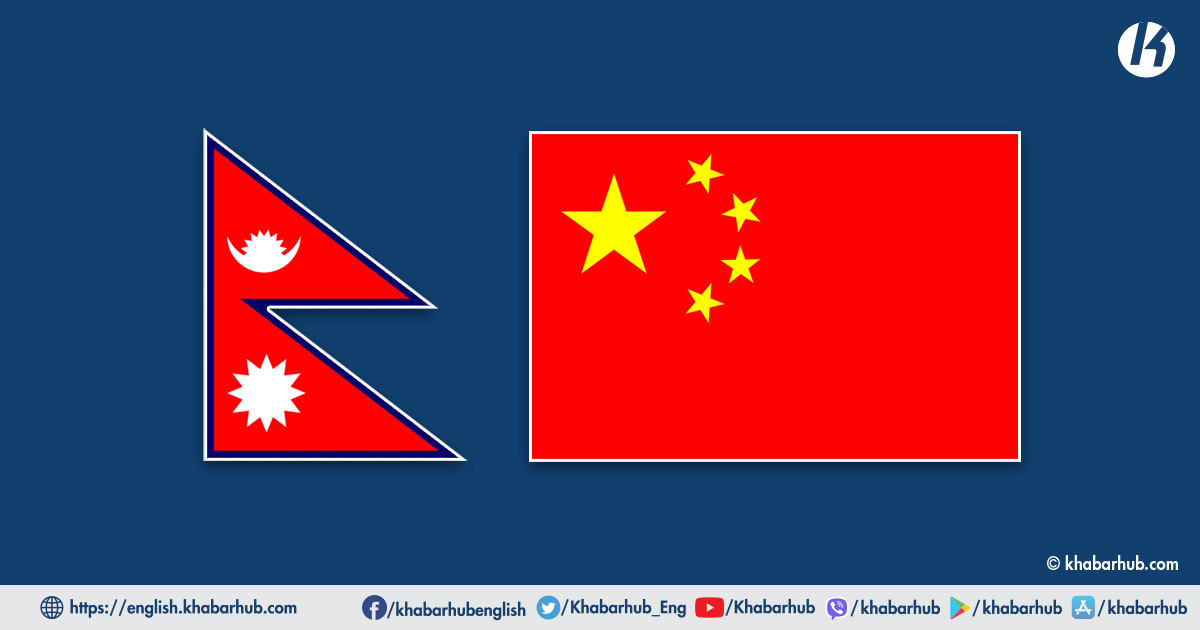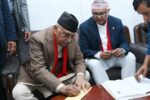Nepal-China relations is a complex situation with many moving parts, and it has been experiencing tensions lately. A study by the Araniko project, titled “Chinese Public Opinion on Nepalese Grant Proposal”, published on September 20, 2024, examines how Nepal’s proposal for debt forgiveness from China has stirred up Chinese public discourse on the internet.
The publication suggests that Chinese netizens were highly disapproving and critical of Nepal’s request to convert loans amounting to US $216 billion into grants, which were provided by China to Nepal.
The topic of Chinese public opinion on the Nepalese grant proposal has been quite active on social media and in public discussions. Many Chinese netizens have expressed frustration, using the phrase “Hòu wàng bāo lái”, which means “give generously, receive little.”
This sentiment reflects a sense of disappointment with Nepal’s political instability and its perceived reluctance to repay debts.
Almost a decade after President Xi Jinping introduced the Belt and Road Initiative (BRI), he announced three initiatives over the past three years.
Beijing introduced the Global Development Initiative (GDI) in 2021, the Global Security Initiative (GSI) in 2022, and the Global Civilization Initiative (GCI) in 2023 for engagement, but on Beijing’s terms.
These initiatives make lofty claims about “achieving common sustainable development” and “eliminating the root causes of international conflicts,” but they fall short of offering substantial financial support, technical assistance, or capacity-building initiatives.
Nepal has desperately wanted to be a part of the BRI. As a result, China added the Trans-Himalayan Multi-Dimensional Connectivity Network to its BRI plans, and the two nations signed the BRI agreement in 2017.
Nepal’s leaders have promoted the proposed rail network crisscrossing the Himalayas as Nepal’s ticket to end its complete dependence on India. However, there has been little development in implementing the BRI in Nepal since then.
For Nepal, Chinese initiatives pose both opportunities and risks. While China offers loans under the BRI at higher interest rates and with a short payback period, the Nepali side has not been enthusiastic.
Nepal has conveyed that it wants more grants from China than loans, insisting that, if a loan must be taken, it should be a “soft loan” or “concessional loan,” which comes with a minimal interest rate. Nepal’s concerns about loans stem from potential debt risks.
Experts say Nepal’s debt concerns are justified, as it must tread carefully when accepting foreign commercial loans, given the country’s growing debt-to-GDP ratio in recent years.
Under the BRI, a proposal for concessional funding had been submitted to the Ministry of Finance to provide a concessional loan to Nepal of up to $1 billion at a 3 percent interest rate. However, not much is known about the funding modality of the BRI projects.
When Nepal signed the BRI agreement in 2017, it was touted as a watershed moment in Nepal-China ties. But with no projects having taken off under the Chinese program, doubts have arisen about whether Nepal is itself reluctant to undertake these projects for geopolitical reasons.
When Chinese Foreign Minister Wang Yi visited Kathmandu in March 2019, the Nepali side proposed developing the Madan Bhandari University under the BRI.
That was the only project the Nepali side had proposed for development under the BRI, but for several reasons, it remains in limbo. The COVID-19 pandemic further delayed other projects as well.
Beijing is frustrated with Nepal’s lack of progress on BRI projects, and it has become a primary concern for China.
The Chinese government has grilled every visiting Nepali delegation about progress on the BRI, and the Chinese embassy in Kathmandu has pressured Nepali leaders.
At the same time, China has invited Nepal three times to join the GSI. However, Nepal has resisted these calls due to its constitutionally mandated policy of non-alignment. Nepal is currently studying Beijing’s invitation to be a part of the GCI.
Beijing is keen to demonstrate that Nepal is progressing in the Beijing-led initiatives. Chinese Ambassador to Nepal Chen Song claimed that Pokhara International Airport, built with Chinese aid and by a Chinese company, is part of the BRI. Nepali Foreign Minister Narayan Saud clarified that “not a single project in Nepal under the BRI has been executed.”
He stated that the project implementation plan is still under discussion and has not yet been finalized.
Another issue fueling rising tensions is Nepal’s growing engagement with other countries, particularly the United States.
The United States has presented an alternative vision through initiatives such as the Millennium Challenge Corporation (MCC), which serves as an alternative to China’s multi-billion-dollar BRI projects in Nepal.
Given the tense geostrategic and security environment in the Himalayas, China views the growing role of the United States as a development partner for Nepal as a potential threat to its influence in the region.
China perceives any external efforts to fortify ties with Nepal as a direct challenge to its regional dominance, raising concerns about potential shifts in the delicate balance of power.
Chinese public opinion often highlights the need for Nepal to be more proactive and committed to the agreements made with China.
There is also a preference for Nepal to accept loans on commercial terms, which has led to disagreements and further complicated the relationship between the two countries.
Diplomatic tensions have also risen, with China’s Ambassador to Nepal, Chen Song, making comments perceived as insensitive and intrusive in Nepal’s domestic affairs.
Chen stirred controversy by targeting a local journalist who criticized China’s loan policy for Nepal.
Chen demanded a public apology from local journalist Gajendra Budhathoki, editor of Taksar Magazine, over a post on X (formerly Twitter).
The May 27, 2024, post claimed that Nepal had taken a loan from China to build the Pokhara Regional International Airport at an interest rate of 5 percent, contrary to the 2 percent mentioned in official documents.
“We demand a formal apology from you and whoever you represent,” Chen wrote on X. “If you have the document, publish it. If you don’t and need time to find proof, then what kind of intention is this? Spreading lies first, then waiting for the tide to subside, and spreading them again.”
This led to criticism and strained relations between the two countries. Several public intellectuals in Nepal said the Chinese envoy’s remarks went beyond the norms of standard diplomatic conduct.
“It is unusual for a foreign ambassador to demand an apology from a host country journalist for a social media post.”
Chen’s predecessor in Nepal also faced heavy criticism. She reportedly tried to forge unity among the communist parties of Nepal and was accused of attempting to influence Nepal’s politics.
The Chinese do not want to lose face due to a lack of progress in these initiatives, as Nepal is generally seen as a country where people largely perceive Beijing’s initiatives positively.
Therefore, Chinese diplomats are finding the lack of progress and enthusiasm to implement BRI projects in Nepal highly frustrating.
Chinese diplomats in Nepal have taken the initiative to spread a false narrative that BRI projects are being successfully implemented in Nepal.
They are under pressure to save face both to a global audience and to their superiors in Beijing.









Comment